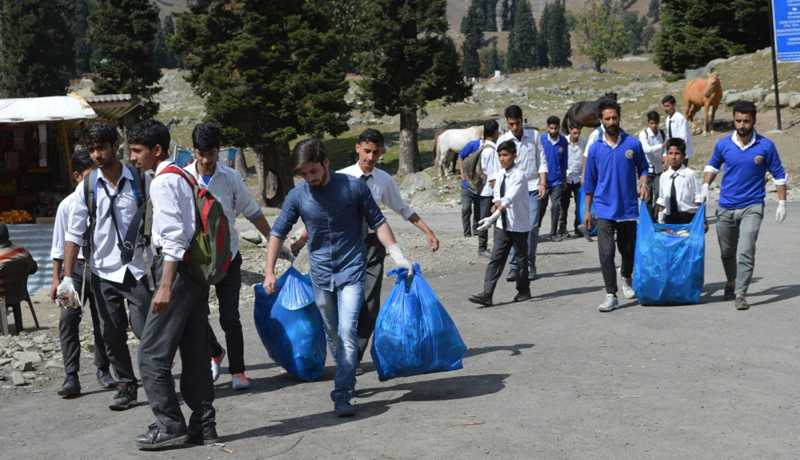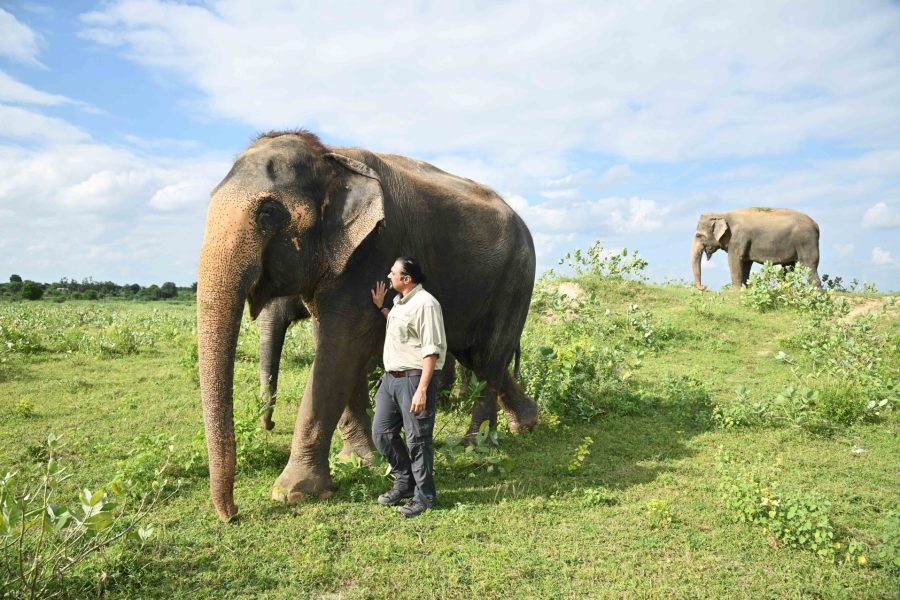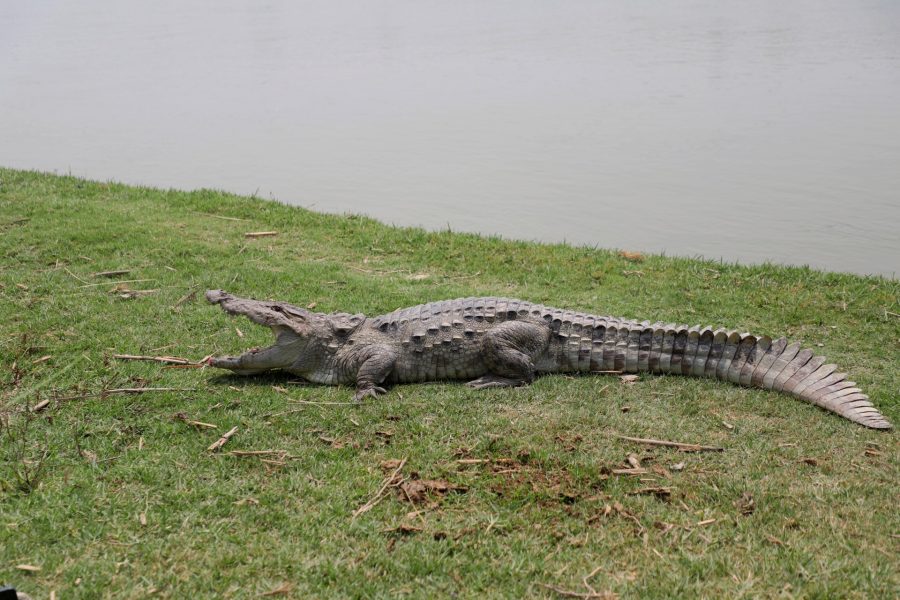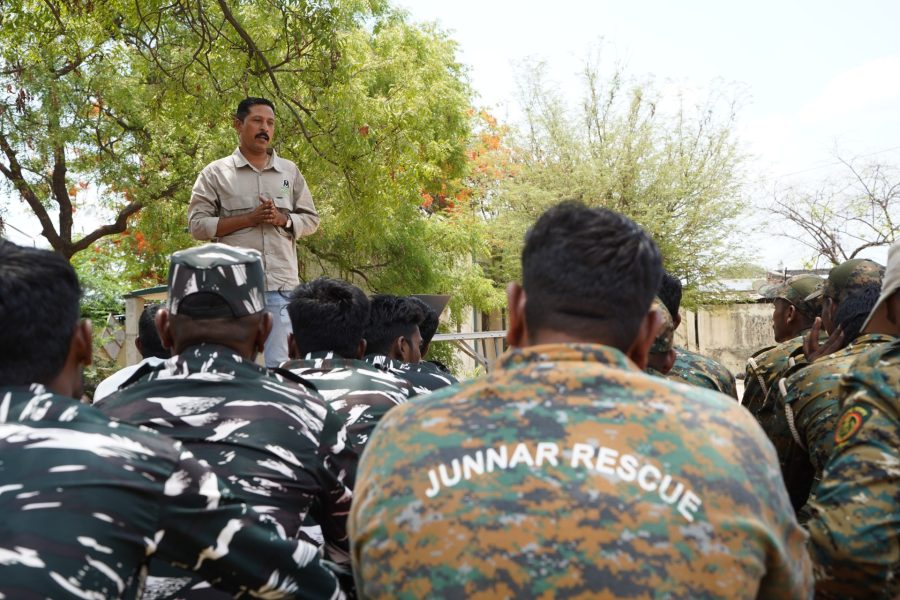The menace of littering and dumping of garbage and waste in the Protected Wildlife Areas has become one of the significantly attributing factors to the problem of man- wild animal conflict, especially in Jammu and Kashmir. Wild animals, especially Asiatic black bears and brown bears have been most common species caught in this conflict and the issue has already taken a serious turn in the Thajwas Wildlife Sanctuary in Sonamarg area. Another area facing a similar situation is the Drag area in the Gulmarg conservation reserve where apart from bears, leopards also become a part of this conflict as they come to hunt the domestic animals that can be found around these trash cans.
Wildlife SOS recognizes this problem as a serious concern for both the human and animal populations inhabiting the area and understands that if this issue remains unsolved then it could lead to worsening of the situation. To manage this challenge, the organization has been working continuously for the past three years, involving the various stakeholders in these regions and helping them create a sustainable model and environment for the safe disposal of waste in region which does not attract wild animals and lead to increase in instances of human-wildlife conflict.

This year, Wildlife SOS in collaboration with the J&K Wildlife Protection Department, Developmental Authorities of Sonamarg and Tangmarg, students from different colleges and schools along with the other stakeholders initiated a cleanliness drive in Thajwas Wildlife Sanctuary and Drang area. The cleanliness drive was organized as part of the “Swachata Hi Seva Hain” campaign, which is going on throughout the India. Wildlife SOS stressed on the importance of having student volunteers from the region itself because it is instrumental for them to understand the importance of the ecology of their region and the delicate balance that sustains it. Most of these students have grown up believing that these wildlife protected areas are primarily tourist spots which they can visit for recreational activities. Wildlife SOS is working with these students to change this notion and inspire these young minds to become crusaders for the cause of environment protection and conservation.

The Thajwas Sanctuary and Drang area are very famous for their water bodies but these places are very quickly losing its sheen owing to higher levels of black carbon in the air and littering. Although there is ban on the use of polythene in these wildlife areas, but they can be found littered everywhere. The participants helped pick and remove garbage from the area and interacted with the local masses and visitors stressing on the importance of the same. Wildlife SOS is also encouraging the stakeholders and residents in the region to adopt the newly introduced concept of bear proof bins which are provided with a safety latch that the bear’s cannot open. An array of such measures can contribute significantly towards mitigation of man-animal conflict in the region.

The participants interacted with the organizers who stressed on shifting focus on bringing about mass mind-set & behavior change towards cleanliness issues which will have long lasting effects on the social as well as economic affluence. Wildlife SOS plans to hold many more such drives across Jammu and Kashmir to raise awareness about the issue and its consequences.




